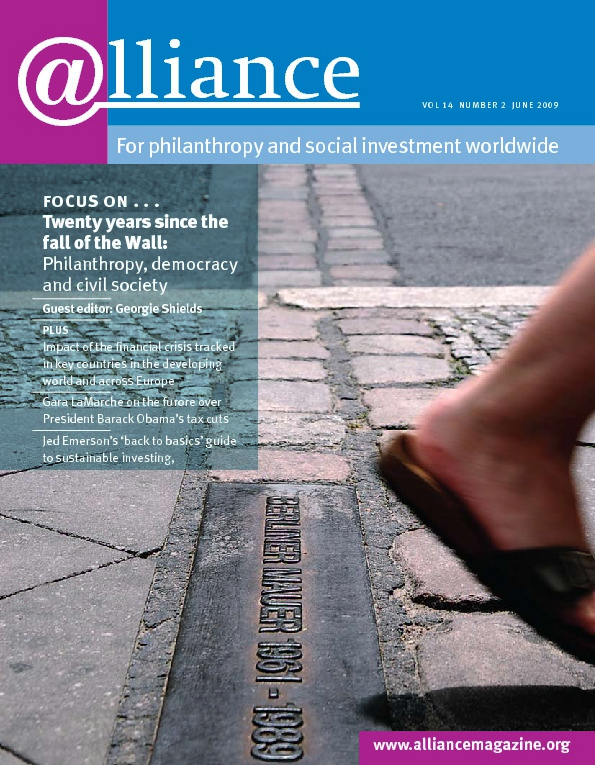At the risk of straining the patience of Alliance readers, I write to underscore what I believe is a powerful point of contention – and potentially maturation – in philanthropy that has been clearly framed through the exchange of views between Theresa Lloyd and me in your pages.
Theresa argues that many international NGOs have made honest, good faith attempts to listen to ‘beneficiaries’, and ‘to translate this into effective communications with funders’. The problem, she says, is not with the will but with the lack of a way – ‘the means to do this remains a great challenge’. While the scars I bear from years of trench warfare on this issue compel me to ask if the resolve of NGOs (international and national) is really all that ‘resolved’, I do agree that the means have not been clear – until recently. With the current work that Keystone Accountability and a number of organizations are now undertaking, the principles, tools and support infrastructure for obtaining feedback from end beneficiaries are fast emerging.
The Bill and Melinda Gates Foundation is making a series of strategic investments to define rigorous practice in this space, working with the Center for Effective Philanthropy in a project called Youth Truth to bring students’ voices to work in enhancing US high school education. It is also working with the Institute of Development Studies and Keystone to explore how feedback from smallholder farmers can underwrite its multi-billion dollar agricultural development programme, and has funded a year-long action learning project undertaken by Keystone and the Alliance for Children and Families in the US to understand how human services leaders there utilized constituency feedback. The results are published in the white paper that may be found at http://www.keystoneaccountability.org/node/241.
Nor is Gates alone in this. The Hewlett Foundation’s recent study on the non-profit sector information marketplace gives stakeholder reviews a central place in its analysis of what is needed for an efficient non-profit marketplace. There are a number of emerging reporting standards such as IRIS and data management platforms like PULSE that embrace rigorous constituency feedback. Even charity rating is taking this on board. Keystone is working with the two leading charity rating websites in the US and the UK, Charity Navigator and Intelligent Giving, to upgrade their rating systems with feedback from end beneficiaries.
The banner headline for Alliance readers from all this work comes from a chief finding of the human services white paper: to transform how we measure and communicate social change, we need an alignment of purpose across funders and implementers. When we have funders, implementers and beneficiaries working together, the means to solve this challenge becomes clear.
David Bonbright
Chief Executive, Keystone Accountability





Comments (0)